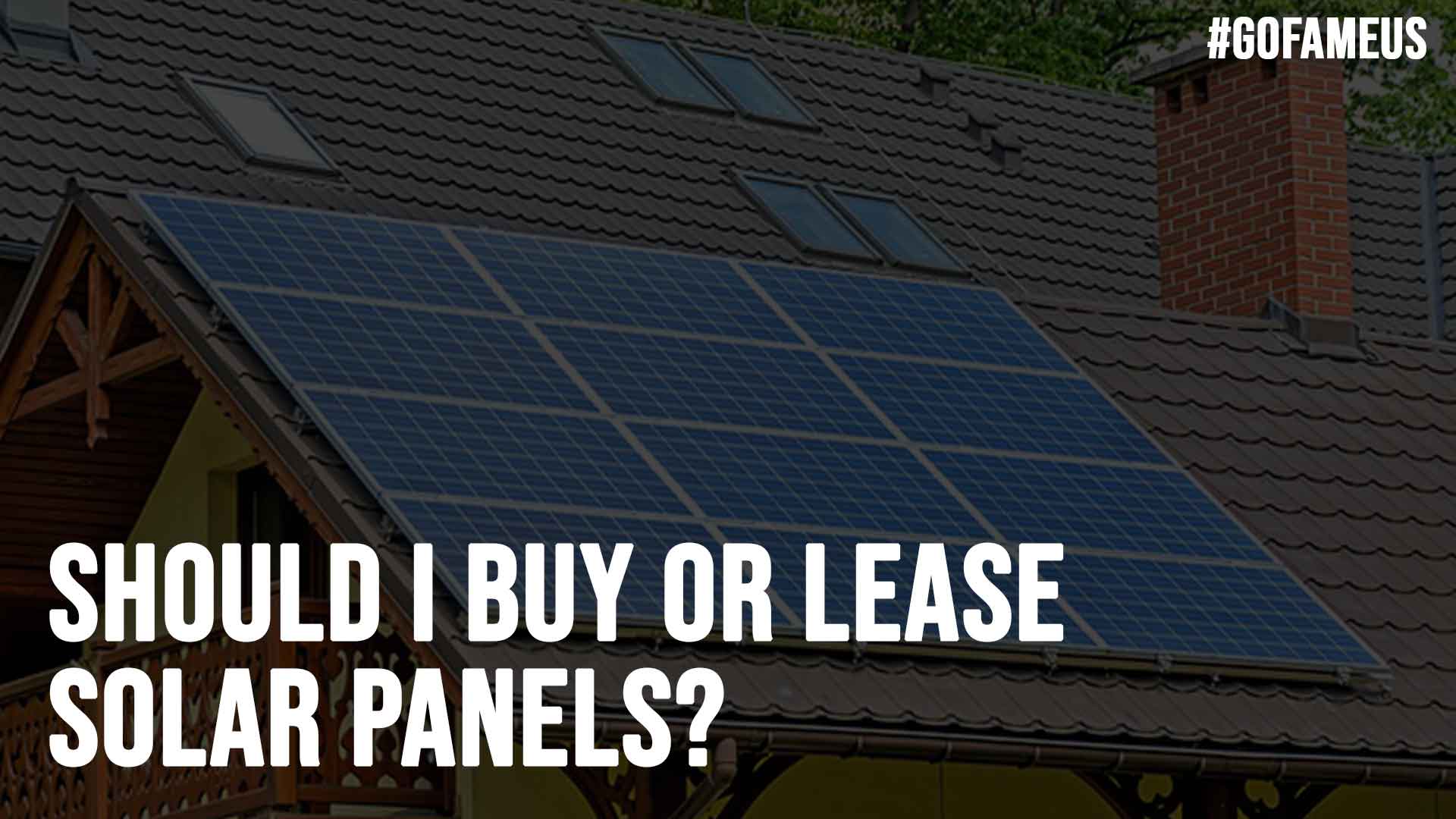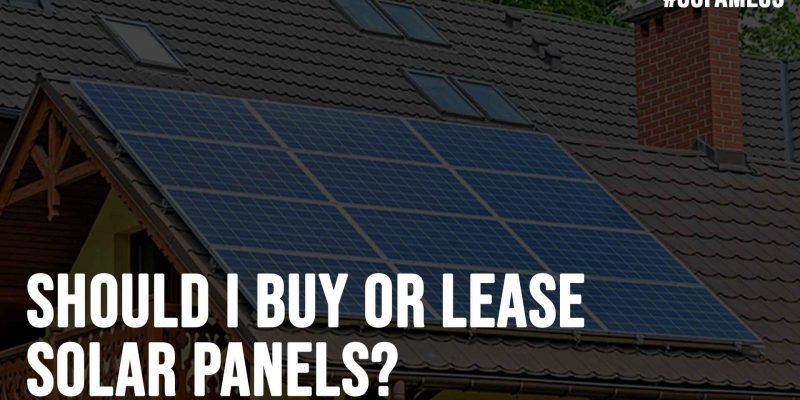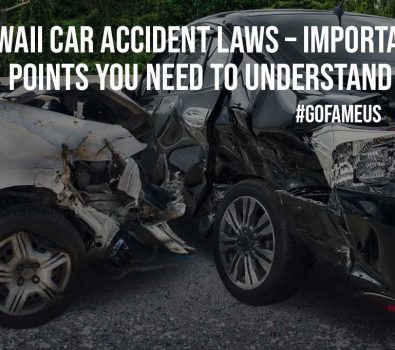
A 2019 survey revealed that 46 percent of homeowners plan to install solar power in their properties. If you’re in this group, you’ve probably heard of the big benefits of solar energy and want to take advantage.
From reduced energy expenses to environmental protection, there’s no doubt going solar is the right way to power up your home or business.
However, the cost of going solar can be prohibitive, easily running past $10,000. This is probably why you’re wondering whether to buy or lease the system.
You’ve come to the right place.
In this article, we’re shedding light on leasing vs buying solar panels. Continue reading for deeper insight.
What Does Leasing Solar Panels Mean?
For starters, leasing is the process of taking possession of a property for a specified period of time, usually in the place of owning it.
As such, leasing solar panels is akin to leasing a vehicle. You’ll pay a one-off leasing fee or down payment, as well as a monthly cost for the entire duration of the lease. In return, you’ll get solar panels and other components needed to power your home with solar.
At the expiry of the lease, the solar company that leased you the panels will take them away. You could also extend the lease.
Also Read: What The Interior Designers Can Do For You?
What Does Buying Solar Panels Mean?
This is pretty self-explanatory, really. Buying solar panels means acquiring them from a company that sells them. Once you pay the full cost, the panels are your assets. You can do them whatever you wish.
Bear in mind that buying solar panels alone isn’t enough to power up your home. There are other components you will need to buy, such as batteries. You need a complete solar power system.
Pros and Cons of Buying vs Leasing Solar Panels
The biggest benefit of leasing instead of buying solar panels is cost. Over the short-term, leasing is far cheaper than buying the panels.
For instance, let’s say leasing costs you $100 a month. Over a 3-year period, you’ll spend about $3,600 to use solar in your home, assuming the lease program comes with a $0-down requirement.
Over the long-term, however, leasing becomes more expensive. If you’re leasing the panels for a 10-year period, for instance, the cost will probably be equal or greater than you’d have bought the panels.
Leasing is ideal when you live in a rental property but want to use solar. If you have a rental agreement, you can set up the solar lease to expire at the same time. This way, you won’t worry about uninstalling the panels and moving along with them.
If you own a home, buying solar panels is the best option. A solar panel installation company will do the job and you won’t worry about making monthly repayments. Also, panels will increase the value of your home.
Also Read: All You Need To Know About Outdoor Furniture Glides
Choose the Right Option for You
The leasing vs buying solar panels debate is any easy to settle. Buying is the better option, clearly, but there are instances when leasing makes economic sense. With this guide, though, you have the information to choose the right options for you.
Stay hooked to our blog for more lifestyle tips and insights.




